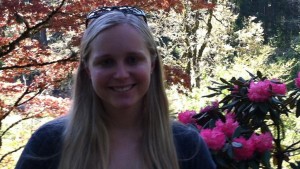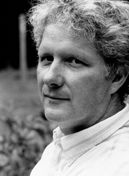By Chelsea Archer
As anyone who has ever moved knows, living in a new city with no friends or acquaintances can be daunting. Having lived my entire life in Reno, NV, suddenly picking up and moving to Oregon was both the most exciting and scary thing I’d ever done, of course that was before I got married. Being a writer, one of the first things I did was look for a local writing group that could get me feeling more connected to the community and pull me out of my anti-social bubble. In stepped the Willamette Writers group. With more than 1,600 members and four regional chapters, they instantly made me feel like I’d made the right choice moving to Oregon. I recently sat down with the Willamette Writers manager Bill Johnson, who was gracious enough to provide a few words of wisdom.
Chelsea: What got you personally interested in writing?
Bill: In high school, I had no interest in literature (I enjoyed reading James Bond novels and encyclopedias), but then I read a collection of best of year science fiction short stories. They were powerful stories that spoke about the world I lived in, in a way that literary fiction had never done for me. They made me think. I started writing science fiction short stories.
Chelsea: How did Willamette Writers get started?
Bill: Willamette Writers was started in 1965 by a group of local writers. In the early days, they had dinner meetings with a speaker at a local restaurant. It cost $10 to attend a one day conference. That was 1973. There was only one chapter in Portland, with a monthly newsletter. Membership was under 100.
Chelsea: What is the mission / goal of Willamette Writers?
Bill: To encourage and promote writers. We have chapters in Portland, Eugene, Medford, Salem, and Newport. The meetings are a place for writers to gather and share information, and the meetings also provide a place for authors and teachers to do presentations and workshops. We have a Herzog Writing Scholarship for high school seniors and college freshman and sophomores, and a Cynthia Whitcomb Scholarship for local teachers and students to attend our conference. Our Kay Snow contest is free for students in grades 1-12. We’ve had students and their families come to an awards banquet at our annual conference. We’ve even had some adult winners fly in from long distances to accept awards; people have told us winning a writing award was the highlight of their life. As more authors self-publish, we offer our members an opportunity to promote their work on our website, an email list, and our newsletter. We do a Books for Kids program that, via grants and donations, buys new books to donate to local organizations that serve children. We also collect gently used books to pass along. Our monthly newsletter is also a place where members can post news about publication or workshops.
Chelsea: What advice do you have for aspiring writers?
Bill: Mainly, don’t lock yourself into one style of writing. I started out writing science fiction short stories, wrote a few unpublished science fiction novels, then became a produced playwright, then a writer/director for video productions. Then I read manuscripts for literary agents and screenwriters in Hollywood, then became office manager of Willamette Writers. When a door opens, go through it. I ignored the people who told me I needed permission to open and go through doors.
Chelsea: What books inspire you?
Bill: When I was young, that collection of science fiction short stories had a huge impact on my life, and seeing a live performance of The Glass Menagerie on TV. It was mesmerizing. My young sisters were bawling as we watched. Kurt Vonnegut blew off the top of my head when I was in my early twenties. In terms of books, The Tin Drum astonished me. Most books, I have a sense of how an author wrote the book. The Tin Drum was beyond my understanding.
Chelsea: What cultural value do you see in writing, reading, storytelling, etc?
Bill: I see plays as the most primal form of storytelling. I see life itself as a story, and definitely things like politics as a form of storytelling. I’ve found in reading manuscripts that struggling writers often don’t understand the difference between writing for an audience and writing as a method to process their issues in life (emotionally numb authors write novels with emotionally numb main characters; authors who feel unacknowledged write novels with main characters who are acknowledged everywhere they go, while characters symbolic of the people the author feels in their personal lives who don’t offer the acknowledgement the author desires, often suffer violent deaths). In a larger sense, people can look back at the industrial revolution and marvel how people managed to survive going from living on farms for generations to crowded slums working in factories. A thousand years from now people will look back at the last twenty years and marvel how anyone survived going from an industrial to a digital society. Uplifting movies and sitcoms that help people relax and feel good about their TV friends are a part of how people survive in our society, for better or worse. The internet offers people a new form of feeling both connected and disconnected, but it’s the new world we live in. I’m not sure how this will play out in terms of storytelling, other than political campaigns and commercials being more sophisticated and compelling to a target audience.
Chelsea: What is the most important thing people don’t know about writing?
Bill: The difference between personal storytelling (stories written to transport the author or deal with the author’s issues in life) and telling a story to an audience, which requires a story, a plot, a main character who wants something, a point, etc.
Chelsea: Why do you think writers should join a group?
Bill: Writing can be a solitary profession, and for some writers personal contact with other authors is both affirming and inspiring. A few authors use networking to get where they want to go as an author (published, produced, etc). That said, some writers enjoy workshops, while others prefer to write intuitively and not explore their writing process. Writers should check out several groups to find the one that meets their needs.
Bill Johnson is author of A Story is a Promise & The Spirit of Storytelling, a writing workbook. He is a produced playwright, has done film work for hire, and read manuscripts for literary agents. He’s the office manager for Willamette Writers, a non-profit writing group based in Portland, Oregon, with over 1,600 members. He reviews popular stories to explore principles of storytelling at his website, http://www.storyispromise.com
 Chelsea Archer was born and raised in Reno, NV. After earning a Bachelors degree in English with a minor in Medieval and Renaissance Studies from the University of Nevada – Reno, she moved to Eugene, OR, where the beautiful landscape quickly began inspiring her writing. She is currently earning her MFA in Creative Writing from Sierra Nevada College. She also works as a Firearm Inspector at Cabelas. When not working or writing she enjoys hiking, scuba diving, and horseback riding. She is currently writing the first in a trilogy of speculative fiction novels that takes place in the Oregon mountains.
Chelsea Archer was born and raised in Reno, NV. After earning a Bachelors degree in English with a minor in Medieval and Renaissance Studies from the University of Nevada – Reno, she moved to Eugene, OR, where the beautiful landscape quickly began inspiring her writing. She is currently earning her MFA in Creative Writing from Sierra Nevada College. She also works as a Firearm Inspector at Cabelas. When not working or writing she enjoys hiking, scuba diving, and horseback riding. She is currently writing the first in a trilogy of speculative fiction novels that takes place in the Oregon mountains.

